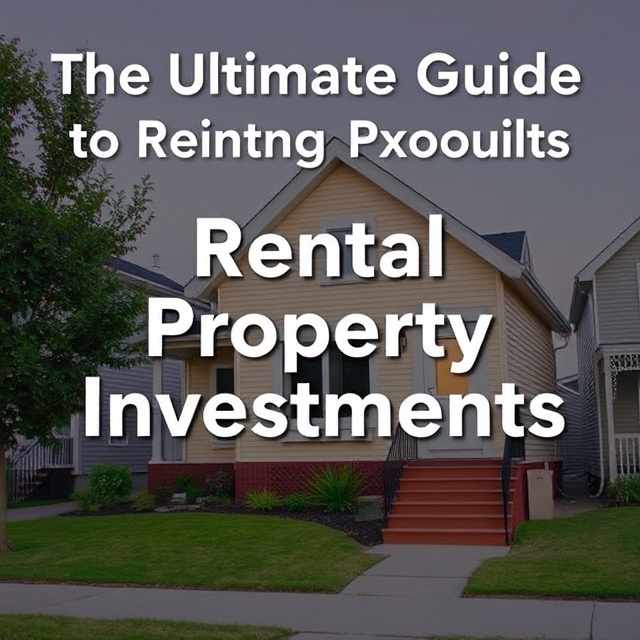Investing in real estate offers a variety of options, from single-family homes to office buildings, and each has its unique set of advantages and challenges. One of the most fundamental choices for investors is deciding between commercial and residential real estate. This decision can significantly impact investment strategy, risk tolerance, and long-term financial goals. In this article, we will dive into the pros and cons of commercial and residential real estate to help investors make an informed decision based on their unique needs. https://paknokri.online/2024/11/01/a-beginners-guide-to-investing-in-real-estate-with-minimal-capital/
1. Understanding Commercial and Residential Real Estate
What is Commercial Real Estate?
Commercial real estate (CRE) includes properties used for business purposes. Examples include:
- Office buildings
- Retail centers
- Warehouses
- Industrial spaces
- Multi-family apartments (in some contexts)
These properties generate income through leasing or renting to businesses, making them ideal for investors looking for stable, long-term income.
What is Residential Real Estate?
Residential real estate (RRE) includes properties used for housing, such as:
- Single-family homes
- Condominiums
- Duplexes
- Townhouses
These properties typically generate income through rent paid by tenants, or investors may buy and hold for value appreciation.
2. Key Differences Between Commercial and Residential Real Estate
Leasing and Tenant Structure
- Commercial: Longer leases, often spanning 3-10 years, provide stable income and reduce tenant turnover.
- Residential: Shorter lease terms, usually one year, can lead to more frequent turnover but allow for more regular rent adjustments.
Tenant Type
- Commercial: Primarily businesses, which tend to take better care of the property as it reflects on their brand.
- Residential: Individuals or families, which might lead to higher property maintenance due to varied tenant behavior.
Maintenance and Management
- Commercial: Tenants often handle maintenance, especially in net lease agreements.
- Residential: The property owner usually handles maintenance, making management more hands-on and time-consuming.
3. Benefits of Commercial Real Estate Investment
Higher Income Potential
Commercial properties generally offer higher rental yields, with annual returns that can range between 6% and 12%, depending on the property type and location. This potential for higher income is appealing for investors looking to maximize cash flow.
Longer Lease Terms and Stability
Long-term lease agreements create more predictable income, especially with established business tenants. These leases, ranging from 3 to 10 years, provide stability, particularly in prime locations with high demand.
Triple Net Leases
In a triple net lease, the tenant covers property taxes, insurance, and maintenance costs. This reduces the owner’s expenses and responsibilities, making commercial properties less management-intensive than residential investments.
Less Competitive Market
The commercial market tends to attract institutional investors, creating less competition from smaller investors. This can make it easier to find high-quality properties in lucrative markets.
4. Benefits of Residential Real Estate Investment
Lower Entry Costs
Residential properties typically have lower price points than commercial properties, making them more accessible to new investors. This lower entry cost means lower risk and easier financing for individuals just starting out.
Easier Financing Options
Many banks offer favorable loans and mortgage options for residential properties, especially for single-family homes. Investors with good credit can often secure low down payments, which is not as common in commercial lending.
Constant Demand
Housing is a basic need, ensuring consistent demand. With growing populations, there is often a stable market for residential rentals, especially in urban areas and near amenities like schools and employment hubs.
Potential for Short-Term Rental Income
Platforms like Airbnb have made short-term rentals viable, especially in high-demand areas. These rentals can generate higher monthly income, making residential properties more versatile for income generation.
5. Risks of Commercial Real Estate
Higher Initial Investment
Commercial properties require a higher upfront cost, which includes the purchase price, legal fees, and sometimes significant renovations to suit tenant needs. This high entry cost may limit accessibility for smaller investors.
Longer Vacancy Periods
Finding business tenants can take months, especially in areas with high competition. Long vacancy periods impact cash flow, and vacant commercial spaces tend to require more upkeep.
Economic Sensitivity
Commercial real estate is sensitive to economic cycles. During downturns, companies may downsize or close, leading to vacancies. Investors in commercial spaces must have financial resilience to handle these economic shifts.
6. Risks of Residential Real Estate
High Tenant Turnover
With shorter leases, residential properties often experience higher turnover, which can lead to higher costs in tenant search, screening, and unit preparation between occupancies.
Intensive Management
Residential properties require frequent hands-on management, such as handling repairs, disputes, and regular maintenance. For landlords, this can become time-consuming, or require hiring a property manager.
Rent Regulation Laws
In some areas, rent control laws limit the amount landlords can charge, capping potential income. These regulations aim to make housing affordable but can impact an investor’s cash flow.
7. Comparing Returns: Commercial vs. Residential
Commercial properties generally offer higher returns, but they are also higher risk. Residential properties, while lower-yielding, often provide more stability. Here’s a comparative view:
| Factor | Commercial | Residential |
|---|---|---|
| Income Potential | High (6%-12% annual return) | Moderate (4%-10% annual return) |
| Risk | Higher due to economic sensitivity | Lower due to constant housing demand |
| Vacancy Risk | Higher; vacancies can last longer | Lower; shorter turnover but frequent changes |
| Management | Less intensive, often handled by tenants | More intensive, often requires direct oversight |
| Tenant Duration | Longer-term (3-10 years) | Shorter-term (6-12 months) |
8. Factors to Consider When Choosing Between Commercial and Residential Real Estate
1. Investment Goals and Risk Tolerance
- If you’re focused on steady income with minimal management, commercial properties may be suitable.
- If you prefer lower risk and want to build equity over time, residential might be more appealing.
2. Financial Resources and Experience
- Commercial properties require more capital, making them ideal for seasoned investors.
- Residential properties are more accessible for beginners, especially with flexible mortgage options.
3. Market Conditions
- Commercial real estate performs well in strong economic climates, so it’s vital to consider market cycles.
- Residential real estate offers more stability during economic downturns as people always need housing.
4. Management Preferences
- Commercial properties often involve lower management responsibilities but require more specialized knowledge.
- Residential properties can be managed personally or through property managers, making them more adaptable.
9. Frequently Asked Questions (FAQs)
Q1: Which is more profitable, commercial or residential real estate?
Profitability depends on market conditions and property type, but commercial properties generally offer higher yields, while residential properties are more stable.
Q2: Is commercial real estate riskier than residential?
Yes, commercial properties are more sensitive to economic changes, making them higher-risk than residential properties.
Q3: Can I invest in both commercial and residential real estate?
Absolutely. Diversifying across both types can balance risk and increase potential returns.
Q4: What’s the easiest type of real estate to manage?
Residential single-family homes are often considered easier for beginners, especially with property management services.
Q5: Are loans for commercial properties harder to get than residential loans?
Yes, commercial loans often have stricter requirements, higher down payments, and shorter loan terms.
Conclusion: Which is Better for Investors?
Choosing between commercial and residential real estate comes down to understanding your goals, resources, and tolerance for risk. Commercial properties may provide higher returns and stability in established markets, making them ideal for experienced investors seeking long-term gains. On the other hand, residential properties are more accessible and offer steady demand, making them well-suited for beginners or those seeking passive income. Both types offer unique advantages, so consider your personal investment goals and conduct thorough market research before diving in.










